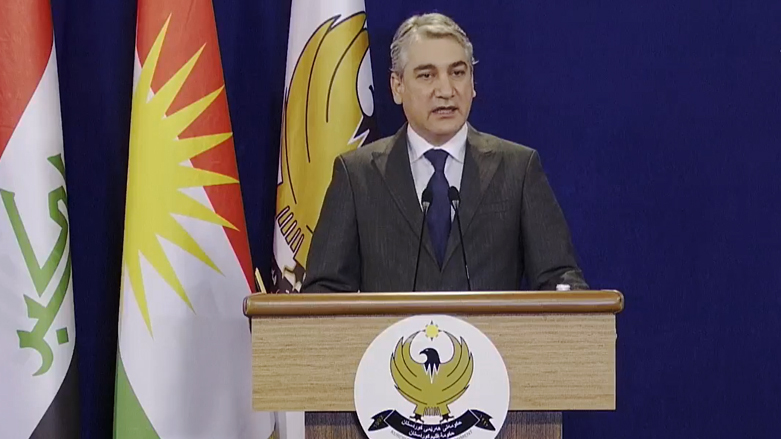700 migrants stranded on Belarus border have registered to return to Kurdistan voluntarily: KRG

ERBIL (Kurdistan 24) – The autonomous Kurdistan Region of Iraq announced on Wednesday that hundreds of its citizens stuck on the Poland-Belarus border have officially requested to return home.
"There are 700 immigrants who have registered their names for voluntary return to the Kurdistan Region," said Kurdistan Regional Government (KRG) Spokesperson Jutyar Adil in his weekly press conference held after cabinet meetings.
"We have received many requests for the return of more stranded migrants," he added.
Adil indicated that the KRG continues to cooperate with Baghdad, European nations, and various organizations to address the crisis that has led to multiple deaths.
Read More: PM Barzani calls on Europe to provide urgent aid to migrants stranded on its borders
According to a government statement summing up this week's cabinet meeting, the head of the Department of Foreign Relations presented a report to update ministers about the situation.
Read More: Kurdistan cabinet addresses violence against women, post-election Iraq, migrant crisis
Ministers present commended the efforts of the department and other relevant authorities to assist the migrants in various ways, such as facilitating their voluntary return and instructing the Ministry of Interior to investigate and prosecute anyone involved in human trafficking.
On Thursday evening, over 400 people, mostly Kurds, arrived in Erbil on a flight from Belarus.
Read More: Over 400 migrants on flight from Belarus touch down in Kurdistan Region's Erbil
While speaking to Kurdistan 24 shortly after their arrival in Erbil, returning migrants gave a mix of reasons for setting out on the dangerous journey, from Yezidis (Ezidis) who had been living in Kurdistan Region displacement camps since fleeing the disputed district of Sinjar (Shingal) when ISIS took over the area in 2014 to others who cited a lack of local job opportunities as their motivation.
Both the Kurdistan Region and the federal government in Baghdad have a longstanding policy to refuse forced repatriations of their citizens.
